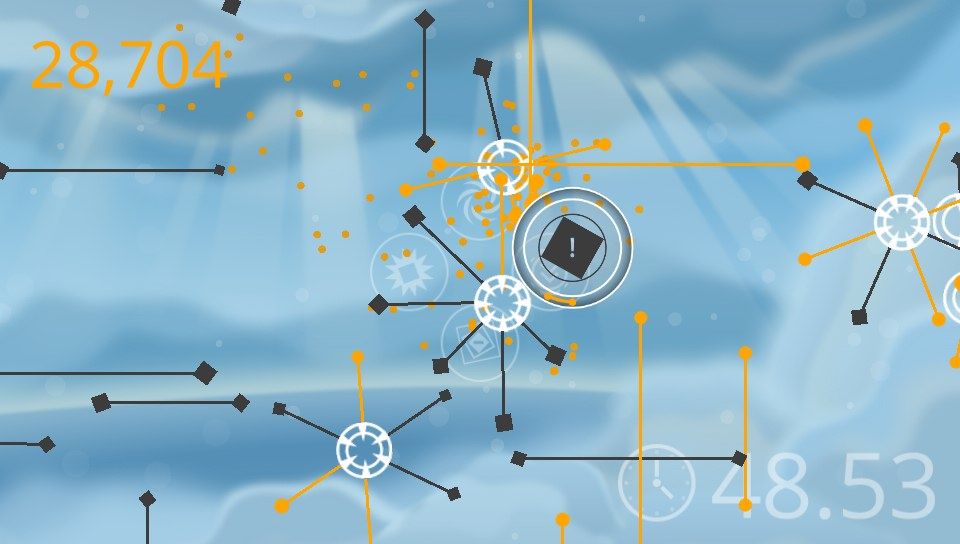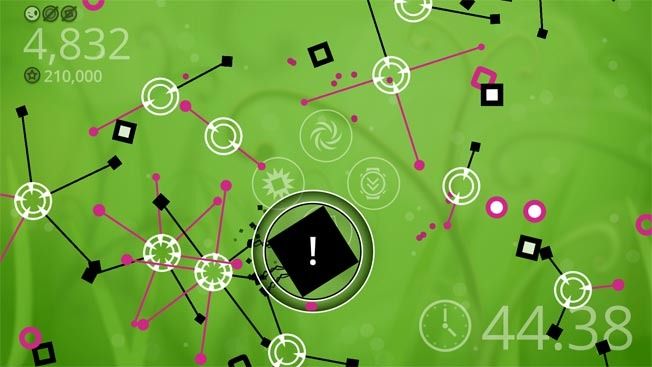RPG is a great videogame acronym. It stands for Role Playing Game, Rocket Propelled Grenade, and – as of fairly recently – Red Phantom Games. This particular RPG is a one-man team consisting of Richard Ogden and his big fat bag of determination. He’s been making games for almost twenty years, but Minutes marks his solo debut. It launched to us Brits and our EU compadres for PS4 and Vita shortly before Christmas, but just this week was unleashed on the Americas. Here, Richard gives us some of the background to Minutes and himself, including how and why the US version is a little different (a newly released patch gives us the same tweaks).
What’s your history in the games industry?
RPG: I started in the industry in 1996 and worked on the first Colin McRae Rally and TOCA Touring Car games at Codemasters. Five years later I was a co-founder of Bigbig Studios (Pursuit Force series on PSP). After being acquired by Sony we went on to create MotorStorm: Arctic Edge and the Vita launch title Little Deviants. During this time I’ve worked in programming, game design, recruitment, production and more. (I’m not an artist though!)
How and why did you start making games by yourself?
Bigbig closed in early 2012. After that I was unsure what I wanted to do so took a break to go travelling. That cleared my head and I returned with a bunch of game ideas and the drive to make something completely on my own terms.
What is Minutes, and why was this the game that you wanted to make?
RPG: Minutes is an abstract action puzzler which mixes retro and modern influences (mechanically and stylistically). It’s a minimalist game, a game that’s purely about arcade-like play. There’s no real context or story. I’d put it alongside games like Superhexagon and say,”Yeah, it’s a bit like that but a bit more geared to console.” It’ll challenge your core videogaming skills – movement, reaction, quick thinking, memorising, strategising, etc. It’s not pushing the hardware but that’s kind-of the point – though it does run at a solid 60FPS. It’s about the fundamentals, not shiny shaders, not emotive storylines, not some deep and meaningful experiences and not collecting different coloured hats. I’m not saying there’s anything wrong with these things. It’s just that Minutes is not these things. It’s pure. It’s a VIDEOGAME and no more. The idea came to me in a moment of clarity (or insanity) and I just took it from there.

What changes will European owners see with the patch that brings it in line with the newer American release?
RPG: The main issue I’ve addressed is the difficulty. It seems I pitched the curve a bit too steeply for the average player. I did design the game to be hard but it seemed sensible, having looked at feedback from players and in reviews, that I should make the game more accessible. The top end, i.e. trying to “Perfect” the game is mostly unchanged as is the scoring (so that leaderboards aren’t affected). But, players should be able to progress more easily and unlock the tools they need to tackle the harder challenges. I’ve also made the level unlocking less linear so you can skip a level and come back to it if you find it frustrating.
The digital market is gigantic compared to what it was ten years ago. What advantages and disadvantages does that offer you as a developer working almost entirely by yourself?
RPG: Well, for a start, it allows me to get into the market and self-publish. That just wouldn’t have been possible without digital publishing. I don’t need to pay for discs, store them, distribute them, etc. The costs are lower so the barrier to entry is lower. I’m not sure there are disadvantages other than not being visible in a real store. But, as with disc-based titles there’s certainly a fair bit of work involved beyond just developing the game.
Recent years have seen many surprising, saddening redundancies and closures at major studios. Does that make you feel more secure working independently – or less secure?
RPG: I don’t think this is anything new. The industry has always been like that. To be honest, I don’t really think about it. I’m lucky enough to be able to pursue this venture for a while. If it doesn’t work out then I’ll spend more time on the freelancing side of the business or get a job working for another company. If it does work out then I’ll be dealing with the exciting prospect of creating employment for others.
Obviously you were making a game that you want to play yourself, but did you feel any pressure to ensure elements that the market at large seemed to want were there, too? Especially after putting countless hours of your life into making it.
RPG: Partly, I did make the game because I wanted to play something different from the usual. As I’m getting a bit older I’m looking for more originality in all types of media, not just games. But there are plenty of games out there that satisfy this need. It was also about setting myself the challenge of making a game (mostly) on my own and bringing it to the console market. Of course, I had to believe that the game would appeal to some section of the market. You can’t ignore the business side if you want to sell copies and fund the next project.

Why PlayStation? And what’s it like working with Sony to get a game on PSN (and keep it there)?
RPG: Historically I’ve been a PlayStation gamer and developer. When I started in the industry I was working on PS1. It just seemed natural. And, I didn’t want to follow the flow over to mobile because I feel the market is too saturated. At least there’s a chance of getting noticed on PlayStation Store and it’s not all down to luck or money. Sony have provided the same kind of support that is afforded any larger developer.
Could we see Minutes on other formats, and why?
RPG: Well, why not? I’d like to get as many people playing as possible. Minutes is a videogame in the classic sense; an arcade game that you play with sticks and buttons. So, I’m looking at other consoles and the PC version is on the way to being finished. I don’t think I’ll be bringing the game to mobile platforms, at least not without a redesign (starting with the controls).
What are your plans for the future?
RPG: Short term will be a mixture of things: getting Minutes working on PC, doing some freelancing work and possibly some DLC for Minutes. I’m expecting to start the next Red Phantom project in the summer. There are two or three candidate ideas for that but I’ve yet to make a final decision. In any case it’ll be something different from Minutes.


Comments